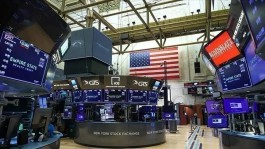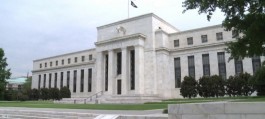Asian stocks were mixed after their US counterparts hit fresh highs ahead of the Federal Reserve's monetary policy decision, with focus on the future pace of interest rate cuts. The yen continued to weaken.
Stocks in Australia and South Korea rose while Chinese indexes wobbled after banks left key lending rates unchanged. Japanese markets were closed for a holiday.
U.S. stock futures were slightly lower after Wall Street’s gains, which were driven by a rally in the so-called “Grand Seven” technology companies. New chips announced by Nvidia helped support the rally.
Traders ramped up bets on a decline in Treasuries in anticipation of a selloff ahead of the Federal Reserve’s decision later Wednesday, when the central bank is expected to keep interest rates unchanged for a fifth straight meeting. Asian trading in Treasuries was halted today due to a holiday in Japan.
The Bloomberg Dollar Index rose for a fifth day against most major currencies. The yen fell against the euro and the dollar amid speculation the Bank of Japan will maintain its accommodative monetary policy even after it ended the world’s last negative interest rate policy on Tuesday.
Waiting for the Fed's statements
The Fed’s summary of economic projections will reveal whether still-strong data gives officials reason to back off on their rate cuts, or whether their forecast for three cuts this year remains on track, even as inflation remains above the Fed’s 2% target.
“You don’t necessarily have to wait for 2% before you can start to unwind some of the tightening,” said Michael Buchanan, deputy chief investment officer at Western Asset Management Company, who expects three cuts in 2024. “I think the first cut will be in June.”
“Whether or not the Fed will adopt a hawkish approach will depend critically on whether or not Jerome Powell sticks to the hawkish scenario,” said Win Thin and Elias Haddad of Brown Brothers Harriman. “If Jerome Powell sticks to the hawkish scenario, the message will remain consistent and the market reaction is likely to be limited. If he deviates from the scenario and presents a dovish bias, the market reaction is likely to be very violent.”
On the other hand, the Federal Reserve is also expected to begin in-depth discussions about its balance sheet this week, including when and how to slow the pace at which the central bank sucks excess money out of the financial system.
Back in Asia, China’s property debt crisis has entered a new phase, with tensions increasingly turning into legal battles between developers and creditors over debt restructuring plans. Separately, Hong Kong has rushed through internal security legislation, prompting fresh warnings from the US, EU and UK about open discussions in the global financial hub.
Elsewhere, Taiwan’s export data and Indonesia’s monetary policy decision are due. Oil steadied after a two-day rally, while gold held steady after Tuesday’s gains. Bitcoin fell for a third session against the dollar, retreating further from recent highs, and traded around $63,000.






































